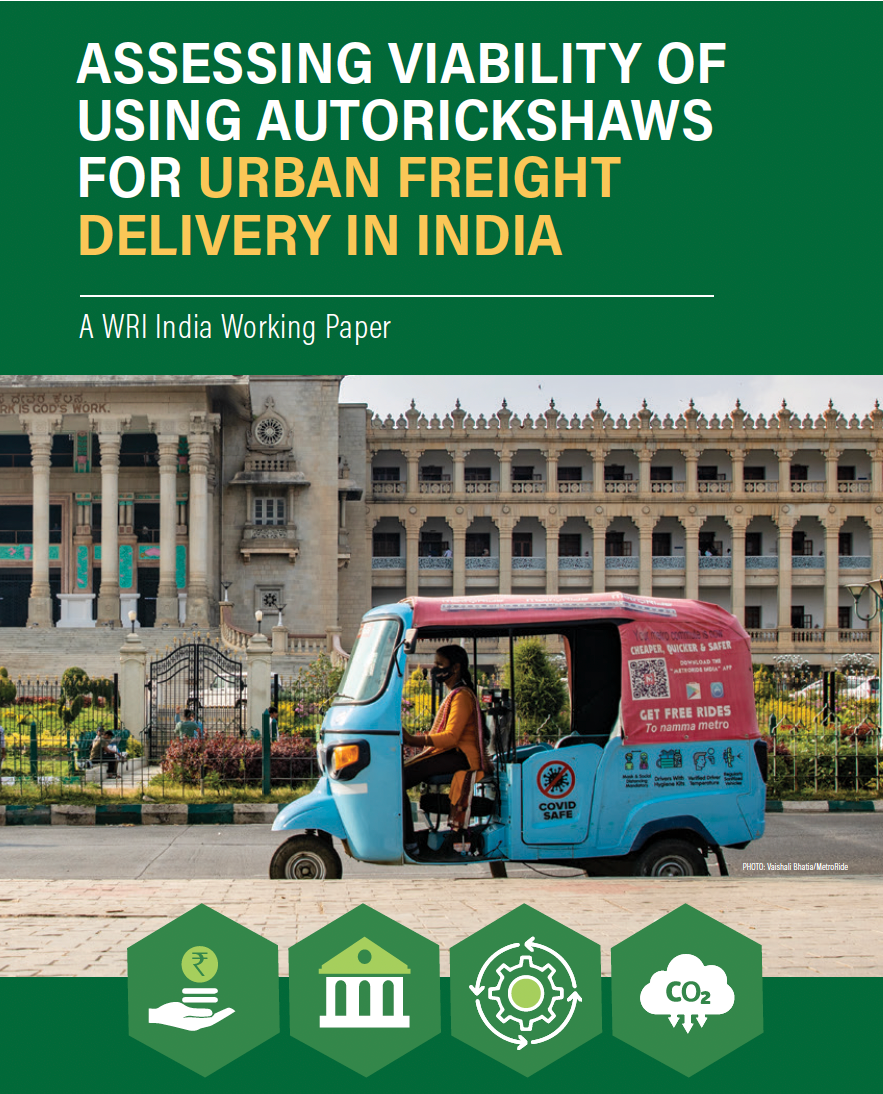Bengaluru, NFAPost: WRI India has released a research paper titled “Assessing the Viability of Using Autorickshaws for Urban Freight Delivery in India,” which highlights the potential benefits of utilizing autorickshaws for both passenger and goods transportation. According to the paper, this dual utilization can address supply gaps in the freight ecosystem while providing an additional source of income for autorickshaw drivers.
The demand for urban freight delivery in India is projected to grow by 40% annually until 2025. To ensure efficient delivery across different load ranges, there is a need for a vehicle category that can transport goods weighing between 30 kg and 350 kg. Currently, no such category exists. The research paper explores the Indian urban freight ecosystem and identifies autorickshaws as a versatile option for filling this market gap. Autorickshaws are well-suited for Indian roads, have a lower environmental impact compared to cargo vehicles, can complement passenger trips, and offer the potential for higher income generation.
During the launch of the working paper at the India Habitat Centre, Dr O.P Agarwal, Senior Advisor at WRI India, was present. A panel discussion followed, featuring experts such as Dr Pawan Kumar from the Ministry of Housing and Urban Affairs, N Mohan from Delhi EV Cell, Shubhra Jain from Amazon India, and Pranav Goel from Porter, who discussed the viability and opportunities associated with dual-use autorickshaws.
WRI India conducted primary surveys in Bengaluru, Delhi, Hyderabad, Lucknow, and Pune, involving business owners, retailers, dealers, distributors, and drivers, among others. The analysis indicates that dual utilization of autorickshaws can increase driver income by 15% and reduce logistics costs for Micro, Small & Medium Enterprises (MSMEs). A significant proportion (72%) of the respondents already reported making dual trips. This trend was consistent across different regions, with nearly three-quarters of respondents adopting dual utility in Bengaluru, Hyderabad, and Delhi. The research also suggests that optimizing passenger autorickshaws for freight purposes can potentially reduce CO2 emissions by 51.5% per trip.
Rohan Rao, the Program Manager of Electric Mobility at WRI India and the lead author of the paper emphasized the need for further study, particularly regarding safety parameters, autorickshaw design, and exploration of other micro-mobility options for goods transportation.
N Mohan, CEO of Delhi EV Cell, mentioned that allowing passenger autorickshaws for goods transport requires appropriate regulations under the Central Motor Vehicles Rules. He considered the report as a starting point for assessing the feasibility of introducing such regulations, focusing on safety, efficiency, and scalability. Mohan also highlighted the importance of collaboration with original equipment manufacturers (OEMs) to design dual-use vehicles, along with the consolidation of demand to facilitate practical implementation.
Pranav Goel, CEO of Porter, stated that optimizing urban freight, including vehicles like autorickshaws, could save India USD 3 billion annually. This aligns with the National Logistics Policy’s goal of reducing logistics costs in the country. Goel emphasized the potential of low-carbon pathways and the suggested dual use of vehicles to help India achieve its net-zero emissions target for 2070. Porter expressed readiness to support the implementation of such initiatives.
While the current regulations of The Motor Vehicles Act 1988 prohibit transporting goods in contract carriages like autorickshaws, recent amendments in 2019 grant discretionary powers to the Central Government to develop a National Transportation Policy in coordination with state governments. This allows for exemptions from older regulations for specific vehicle categories, enabling the nurturing of innovative mobile applications and the regularization of dual-use autorickshaws.
For further information, the full report can be accessed here: Assessing the Viability of Using Autorickshaws for Urban Freight Delivery in India | WRI INDIA





